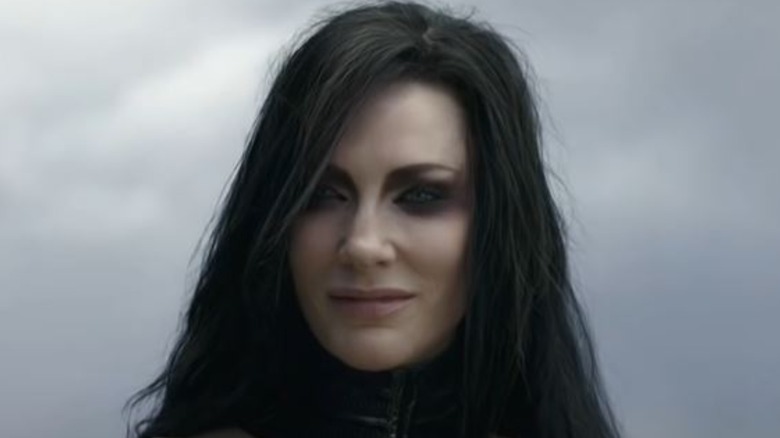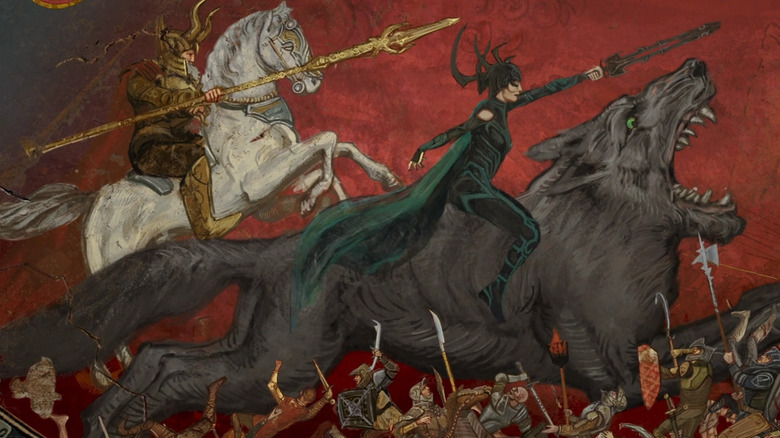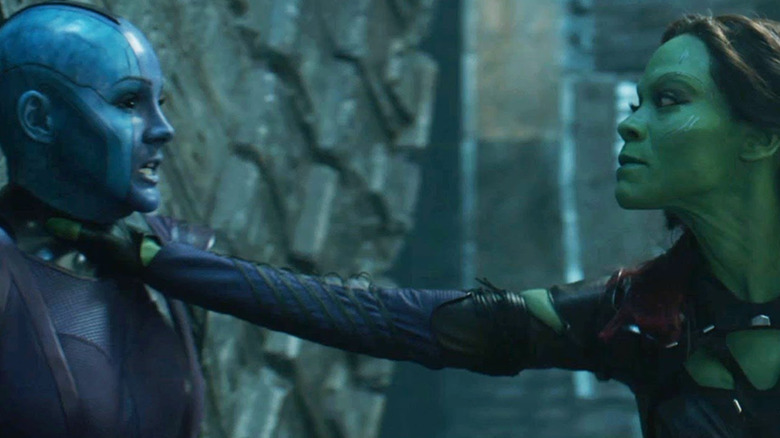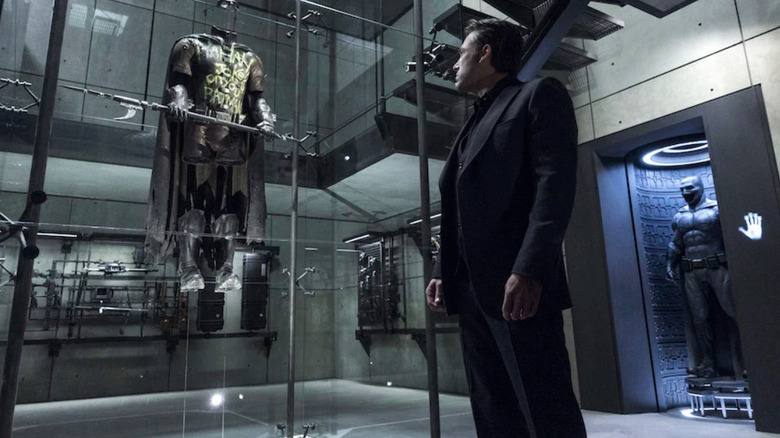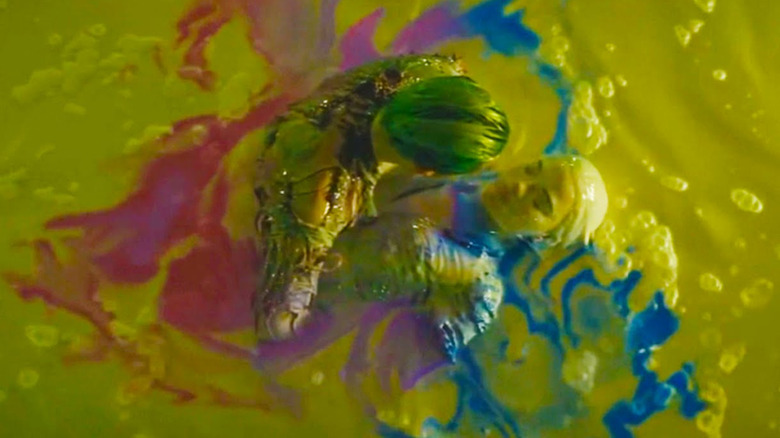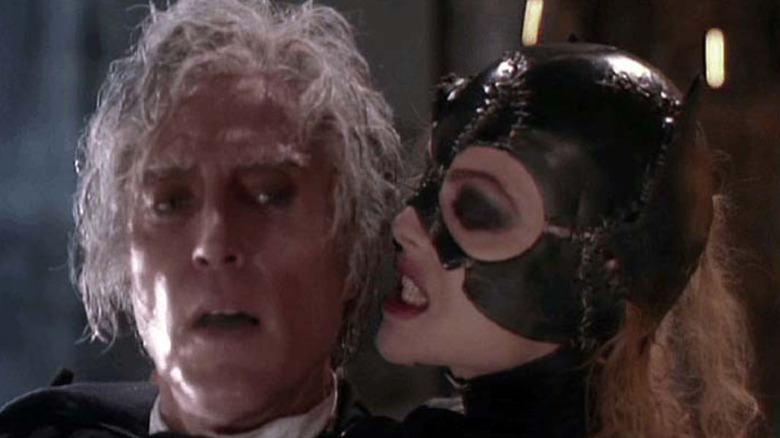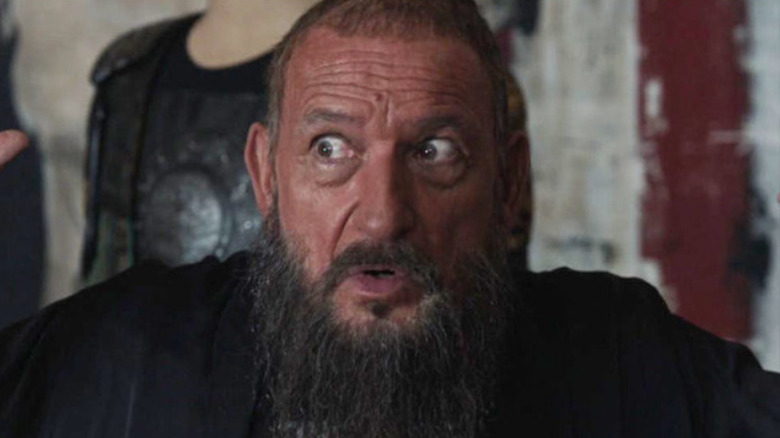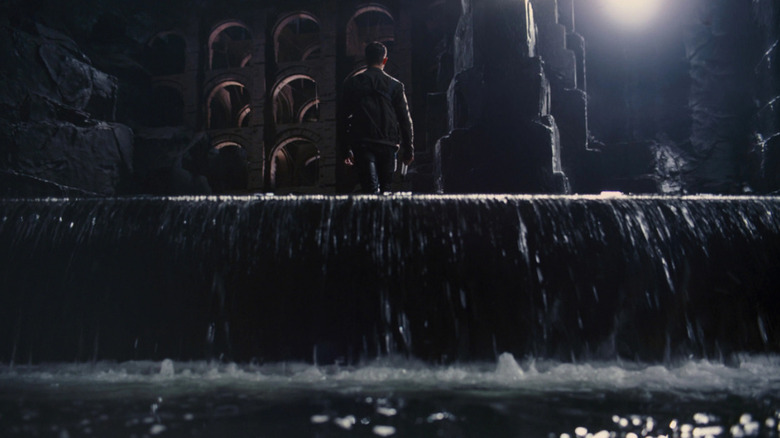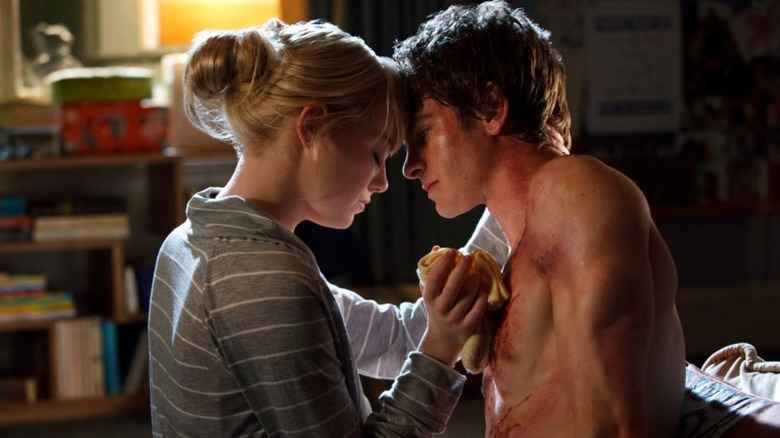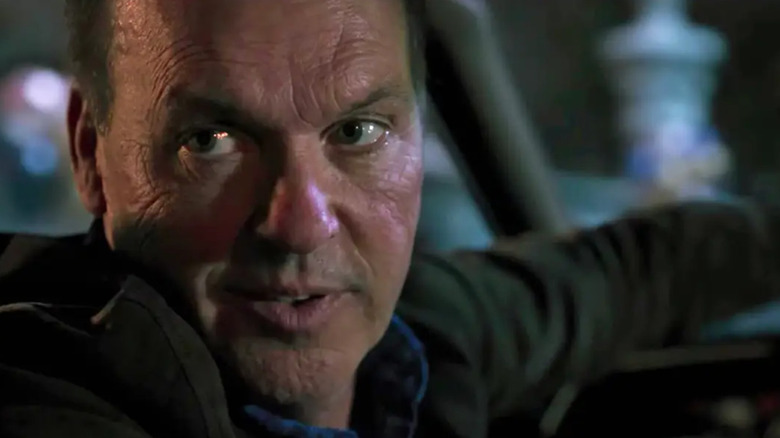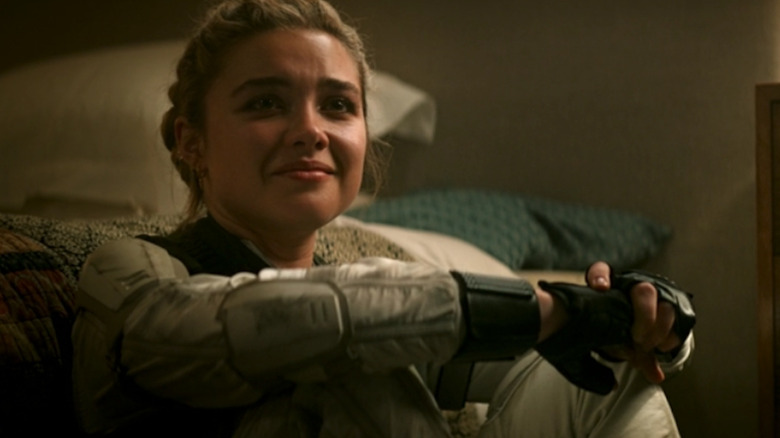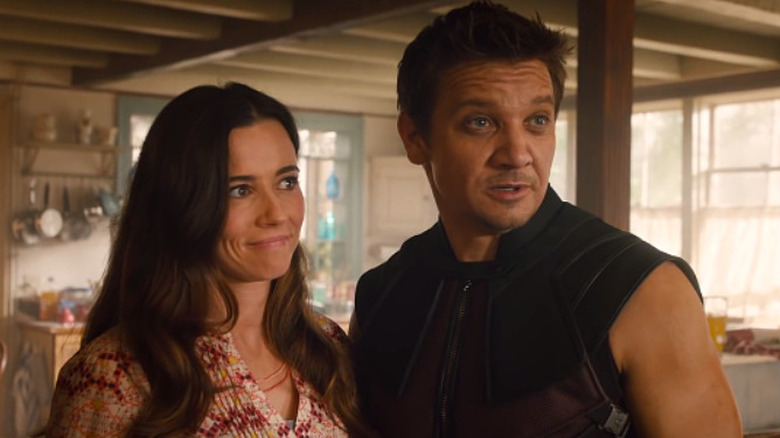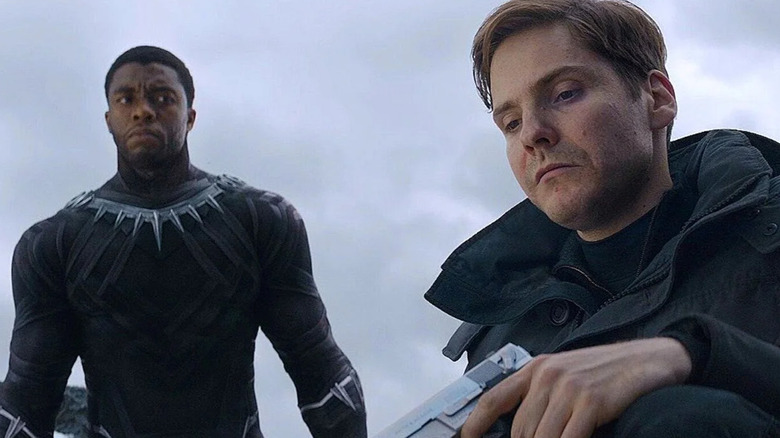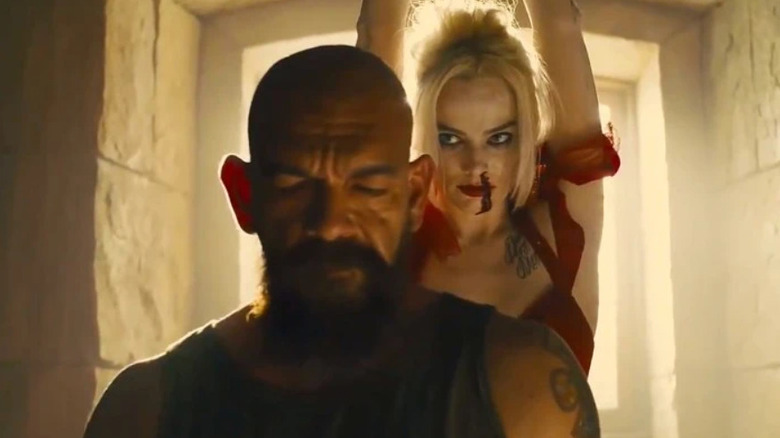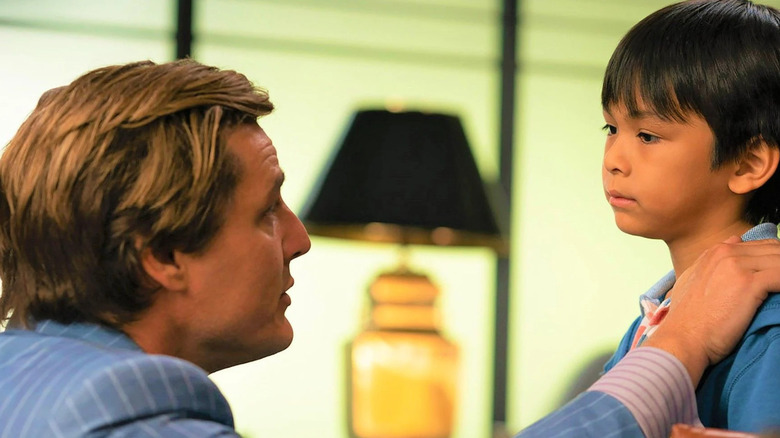Superhero Movie Subplots Better Than The Actual Plot
Over the last two decades, superhero movies have come to dominate the box office like no other genre. A well-made MCU or DCEU film is the closest to a sure thing that the film industry has to rely on, no matter how many problems such reliance on a single genre can create for small or mid-sized films in other categories.
Despite the exponential increase in the number of superhero movies, the formula for a typical superhero outing has been remarkably uniform since the days of 1978's "Superman." There is the villain threatening to destroy a community for their nefarious ends, and a hero blessed with incredible power/resources/skills who charges in to rescue the community via kicking and punching.
The adherence of the genre to this formula has led to criticisms that most superhero movies are starting to feel the same. But while film studios continue to stick to an "if it ain't broke, don't fix it" philosophy with regards to the main plot of superhero films, a number of movies in the genre have given us far more interesting subplots. Here are several subplots from superhero movies that were more interesting than the central conflict of the story. (Warning: Spoilers ahead)
Hela and Odin conquer the Nine Realms
"Thor: Ragnarok" was the most out-and-out comedic movie the MCU ever produced, even more so than "Guardians of the Galaxy" or "Ant-Man." But the narrative underpinnings of "Thor: Ragnarok" were actually one of the darkest and most tragic sagas in the entire franchise, as encapsulated by the subplot regarding the mighty Odin (Anthony Hopkins) and his firstborn daughter Hela (Cate Blanchett).
The literal Goddess of Death, Hela was a source of secret shame for Odin because of what they had done together. It is revealed that Odin had once been a bloodthirsty tyrant who waged war across the cosmos in order to subjugate the nine realms. Odin was aware of Hela's genocidal nature and immense power and he used her as his personal attack dog. Later, after Odin grew weary of war and wished for peace, he knew Hela would need to be taken out of the equation because she would never agree to a life of peace.
To that end, Odin sealed away his own daughter in another realm, and rewrote his personal history to eliminate any mention of his firstborn or his actions from that time. A full movie about Odin and Hela's time together waging war against all of existence, and Odin's eventual betrayal of her would be one of the most epically thrilling stories the MCU has ever told. Picture "Game of Thrones" set in space.
Nebula and Gamora become true sisters
There is no shortage of tragic characters in the MCU, but possibly none more so than Nebula (Karen Gillan), adopted daughter of Thanos (Josh Brolin). Her homeworld was destroyed by the Mad Titan, who took the little orphan girl under his wing. Nebula grew up craving Thanos' approval.
But instead of showing her the same love he showed his other adopted daughter Gamora (Zoe Saldana), Thanos treated Nebula like an unwanted stepchild. He forced the two sisters to battle frequently. Every time, Nebula would lose, and Thanos would replace a part of her body with machinery. This kind of treatment poisoned Nebula's mind against her own sister to the point where it became an overriding passion for her to first kill Gamora and then Thanos.
In "Guardians of the Galaxy, Vol. 2," a heartbreaking subplot saw Gamora and Nebula come to terms with how their adopted father's behavior ruined their own relationship. As Nebula angrily told Gamora, "You're the one who wanted to win. I just wanted a sister! You were all I had." After years of enmity and bad blood Nebula and Gamora finally embraced as sisters, and Nebula found a whole new family in the shape of the Guardians.
Batman struggles with depression over Robin's death
"Batman v Superman: Dawn of Justice" has been frequently criticized for its lengthy run time, the characterization of the two titular characters, and the fact that the final epic battle between the Dark Knight and the Man of Steel was resolved because their moms had the same name. But there was one important subplot that was done way better than the titular matchup, one which does not get the attention it deserves: Bruce Wayne's (Ben Affleck) feelings of guilt and depression over the death of Robin.
Right from the start, it is made clear that this version of Bruce Wayne has gone off the deep end, torturing the criminals of Gotham and showing little regard for human life in his pursuit of justice. We also see Bruce taking pills to deal with his mental condition, sleeping with nameless women, and growing increasingly paranoid about the arrival of Superman. All these signs point towards Bruce suffering from immense amounts of guilt and depression that have warped his character.
Harley Quinn's romance with the Joker
Jared Leto's take on the DCEU's Joker is often compared unfavorably to other versions of the character. But you have to remember Leto's Joker had to be a convincing lover, one who could realistically be shown to be an object of obsessive-affection for Harley Quinn (Margot Robbie).
On that front Leto's Joker can be said to have succeeded to some extent, since the most memorable part of 2016's "Suicide Squad" was the subplot revolving around Harley and Joker's love story. From their first meeting in Arkham Asylum, to Harley proving to Joker how much she loves him, to Joker finally admitting he actually cares for her when he rescues Harley from the chemical vat, their twisted love story left viewers wanting more. We also got to see a new, caring side to the Clown Prince of Crime, one which he is almost ashamed to admit to since it goes against his carefully crafted persona
Catwoman's vendetta against Max Shreck
1992's "Batman Returns" had the unenviable task of following in the footsteps of the original "Batman" movie, which showcased an epic battle between the Dark Knight and the Joker. In order to raise the stakes, filmmaker Tim Burton decided to go with not one but three new villains, the most memorable of them being Selina Kyle aka Catwoman (Michelle Pfeiffer).
While Batman (Michael Keaton) went through the motions of fighting the main villain Penguin (Danny DeVito) to save Gotham, it was Catwoman who got the much more personal and emotionally-charged side story. Selina Kyle was betrayed and nearly killed by her boss Max Shreck (Christopher Walken). She came back from the dead a changed woman and crafted the persona of the vigilante Catwoman in her quest for vengeance.
Any time Catwoman is onscreen, Pfeiffer delightfully hams it up as the feline anti-heroine. She also gets the more satisfying final showdown when she confront Shreck in Penguin's lair and he shoots her with a gun. Selina manages to shoot Shreck back with a stun gun, apparently giving up her life in the process. But a triumphant final scene shows Catwoman having survived the ordeal and watching the bat signal shining over Gotham.
The fake Mandarin
"Iron Man 3" was a confused movie to say the least. Between juggling Tony Stark's (Robert Downey Jr.) struggles with PTSD, the threat of a new CEO Aldrich Killian (Guy Pearce), and introducing Iron Man's most famous villain from the comics, the Mandarin (Ben Kingsley), there were too many plotlines running all over the place.
It was the "Mandarin" subplot that had fans the most excited in the days leading up to the movie's release. The promos hinted that the character from the comics had been revamped to shed his past as a racist caricature and reinvented as a terrorist leader with vast resources and unknowable goals. When the movie finally released, it turned out that this version of the Mandarin was a fake, an actor named Trevor Slattery who had been hired by Killian to lead Tony Stark down a false trail.
While the reveal outraged some comic book purists, there is no doubt that Kingsley was alternately chilling in his Mandarin guise, and completely hilarious as Trevor. The actor proved so popular in the role that he was eventually brought back for "Shang-Chi and the Legend of the Ten Rings" as a prisoner of the actual Mandarin (Tony Leung).
Detective John Blake becomes the new Batman
"The Dark Knight Rises" faced the same problem as "Batman Returns," in that it had to somehow match up to the previous installment in the series that had already seen an epic clash between Batman and his arch-enemy Joker. Once again, the makers of the movie decided to up the ante by introducing Catwoman (Anne Hathaway) and an evil businessman John Daggett (Ben Mendelson) alongside a classic comics villain in the shape of Bane (Tom Hardy).
But while Batman's (Christian Bale) central conflict against Bane is often criticized for its gaps in logic and the reveal that Bane was ultimately just a lackey for Talia al Ghul (Marion Cotillard), there was one other character that got a much better arc. Detective John Blake (Joseph Gordon-Levitt) was created specially for the movie, and he got an impressive introduction scene where he managed to guess Batman's secret identity based on their shared past as orphans.
Throughout the rest of the movie, we see John Blake selflessly serve the people of Gotham, save Commissioner Gordon's (Gary Oldman) life, assist Batman in fighting Bane's goons, and generally prove himself a worthy sidekick to the Dark Knight. Blake's journey was so well done that when it is finally revealed that his real name is "Robin," and he has been chosen by Bruce to become the next Batman, the moment feels earned and we end up rooting for Blake to take Bruce's place as the new protector of Gotham.
Gwen Stacy and Peter Parker's romance
"The Amazing Spider-Man" movies starring Andrew Garfield as Spider-Man are sometimes considered a low point for the character's cinematic history. Lackluster villains, convoluted storylines, and a dramatic tonal departure from Sam Raimi's previous "Spider-Man" films combined to keep Garfield's take on the character from ever truly taking off.
But there was one aspect of Spider-Man's life that "The Amazing Spider-Man" films portrayed better than any other, which is romance. Emma Stone played Gwen Stacy in the films, who replaced Mary Jane Watson as Peter's one true love. Behind the scenes, Garfield and Stone began dating after meeting on the sets of "The Amazing Spider-Man," and their off-screen chemistry transferred brilliantly to the big screen.
As a result, while romance takes a backseat in other "Spider-Man" movies, in "The Amazing Spider-Man" and its sequel, Gwen Stacy's character was an essential part of the narrative. She provided emotional support to Peter, and Stone's excellent comedic abilities also helped her character be much more than a one-note damsel in distress in some of the franchise' funniest scenes. Thanks to Stone's performance, Gwen's death at the end of "The Amazing Spider-Man 2" was also a genuinely heart-breaking moment for fans.
The origin of the Vulture
"Spider-Man: Homecoming" was a coming-of-age story about Peter Parker (Tom Holland) as he learns to stop relying on technology provided by Tony Stark and becomes a superhero in his own right. The problem is, this is essentially something that Peter had already shown to have grappled with in "Captain America: Civil War" before he ever met Tony or got the tech-based Spidey suit.
As a result, "Spider-Man: Homecoming" felt like a more lightweight entry in the MCU, with nothing major added to the character of the hero. But the movie did a far better job with the villain. Michael Keaton shone as Adrian Toomes, a blue collar worker who is forced to become a supervillain to take care of his family. In the beginning, we see Toomes being laid off work because Tony Stark's company has essentially cornered the "superhero battle cleanup" market.
As a result, Toomes decides the only way to keep up with this new world was to get superpowers himself. Over the course of the next few years, Toomes and his crew scrap together discarded alien technology to build all sorts of fantastic weapons which they use to commit crimes, while keeping the truth about their operation a secret from their families. It's like a truncated version of "Breaking Bad" placed within the context of the MCU.
Yelena Belova's journey since childhood
In 2021, more than a decade after the MCU began, Natasha Romanoff aka Black Widow (Scarlett Johansson) finally got her own solo movie. Unfortunately, the film added very little new information to the character's journey (aside from how Natasha got her new green jacket), since audiences were already familiar with her origins and even where her character was headed after "Black Widow" ended.
The main plot of the story deals with Natasha's determination to shut down the "Black Widow" assassination program that created her and is still churning out brainwashed assassins. Aside from this action-packed main storyline, there is a much more emotionally compelling subplot that centers around Yelena Belova (Florence Pugh), Natasha's step sister for a brief period in their childhood when both were pretending to be a part of a Russian spy family.
After that, Yelena was broken off from Natasha and everyone else she loved and forced to become another Black Widow assassin. All through the movie, we see Yelena desperately hold on to any remnant of the family life she remembered even though she knows it was all a farce because, as Yelena once says in anguish, "It was real to me!" Thanks to Pugh's excellent take on Yelena, fans are looking forward to seeing more of the character in future MCU projects.
Hawkeye's secret family
Immediately after the first "Avengers" movie came out was a tricky time for the MCU. The studio had proven beyond a doubt that team-up movies worked much better than standalone superhero movies. As a result, the next "Avengers" movie was tasked with setting up a larger narrative that would continue for several years and culminate in the biggest superhero crossover feature of all time.
Due to this mandate, "Avengers: Age of Ultron" is stuffed to breaking point with plot threads that have no reason to be there beyond setting up future movies. From Thor's visions of Ragnarok to Tony's vision of Thanos' arrival to introducing Scarlet Witch, Vision and Quicksilver, there is a lot of fat in the movie that bogs down the central narrative with a bunch of mini side-quests.
One subplot that adds to the emotional weight of the story is finding out about Clint Barton (Jeremy Renner) aka Hawkeye's secret family farm where his wife and children live in hiding. In that sequence, Hawkeye goes from a government agent we know very little about to a family man with the most to lose among the superheroes. With that moment, Hawkeye becomes the emotional center of the Avengers rather than just a dude with a weapon that quite frankly became obsolete in the previous century.
Black Panther hunts Bucky Barnes
The promos for "Captain America: Civil War" promised a major upheaval in the MCU when its two biggest heroes Captain America (Chris Evans) and Iron Man (Robert Downey Jr.) became embroiled in a battle for the ages, with the other Avengers picking sides with either Team Cap or Team Iron Man.
But then the movie came out, and the epic battle turned out to be a heated disagreement at best. It was clear throughout the movie that neither team had any intention of causing actual harm to the others, and the biggest casualty was a mistake when Vision (Paul Bettany) accidentally shot down War Machine (Don Cheadle). The movie also essentially handwaves away any potential future problems caused by the schism between Team Cap and Team Iron Man when Steve Rogers gives Tony Stark his personal phone number at the end with a note telling him to call if he ever needs help.
On the other hand, there was a much more serious conflict brewing between T'Challa aka Black Panther (Chadwick Boseman) and Bucky Barnes (Sebastian Stan). T'Challa mistakenly thought Bucky had killed his father, and was ready to avenge the wrong by taking Bucky's life. In the end, in one of the film's best scenes, T'Challa is forced to realize he had been manipulated by Baron Zemo (Daniel Brühl) and has to learn to let go of the rage consuming him.
Harley Quinn's new boyfriend
Harley Quinn (Margot Robbie) has famously never had much luck with men. Her obsession with the Joker has led to much pain and anguish over the years. Her main storyline in the DCEU has been about learning to let go of her feelings for the Clown Prince of Crime, and becoming a self-sufficient person who does not need romantic attachments to feel fulfilled.
In 2021's "The Suicide Squad," it appeared that Harley had forgotten her hard-earned lessons as she fell headfirst into yet another toxic relationship, this time with a literal dictator. But just as fans were afraid Harley was going to get her heart broken all over again, she shot her would-be-lover dead, informing him that she had made a promise to herself to end any new relationship she gets into if there are any signs of it becoming toxic.
The rest of Harley's side plot in the movie is one of the most exhilarating bits in the DCEU, as Harley escapes from the dictator's prison by slaughtering all his men in a hilarious and action-packed sequence, is able to make her way back to her squad, and is finally united with the people who actually care about her and accept her for who she is.
Maxwell Lord learns the error of his ways
Many fans are still trying to make head or tails of what exactly "Wonder Woman 1984" was supposed to be. There were too many weird elements to the movie, from Diana getting the ability to make objects invisible out of nowhere, to the implication that any person who wishes for something would only wish for selfish or destructive things, and the whole "Diana dating Steve who is secretly controlling another man's body" fiasco.
In this muddled mess, the main villain Maxwell Lord (Pedro Pascal) actually managed to have some sort of a meaningful arc. He starts out a man obsessed with becoming rich and famous. This obsession leads him to the dream stone, which Lord uses to fulfill other people's wishes, and in the process becomes the most powerful man in the world.
In the end, Lord has to come to the realization that all the power in the world will not heal the wounds of his childhood. The only healthy thing to do is to make sure his own son does not grow up with the same feelings of inadequacy that Lord did. In one of the film's most touching scenes, Lord willingly renounces his powers and goes to find his son instead after coming to fully understand the importance of their relationship.
